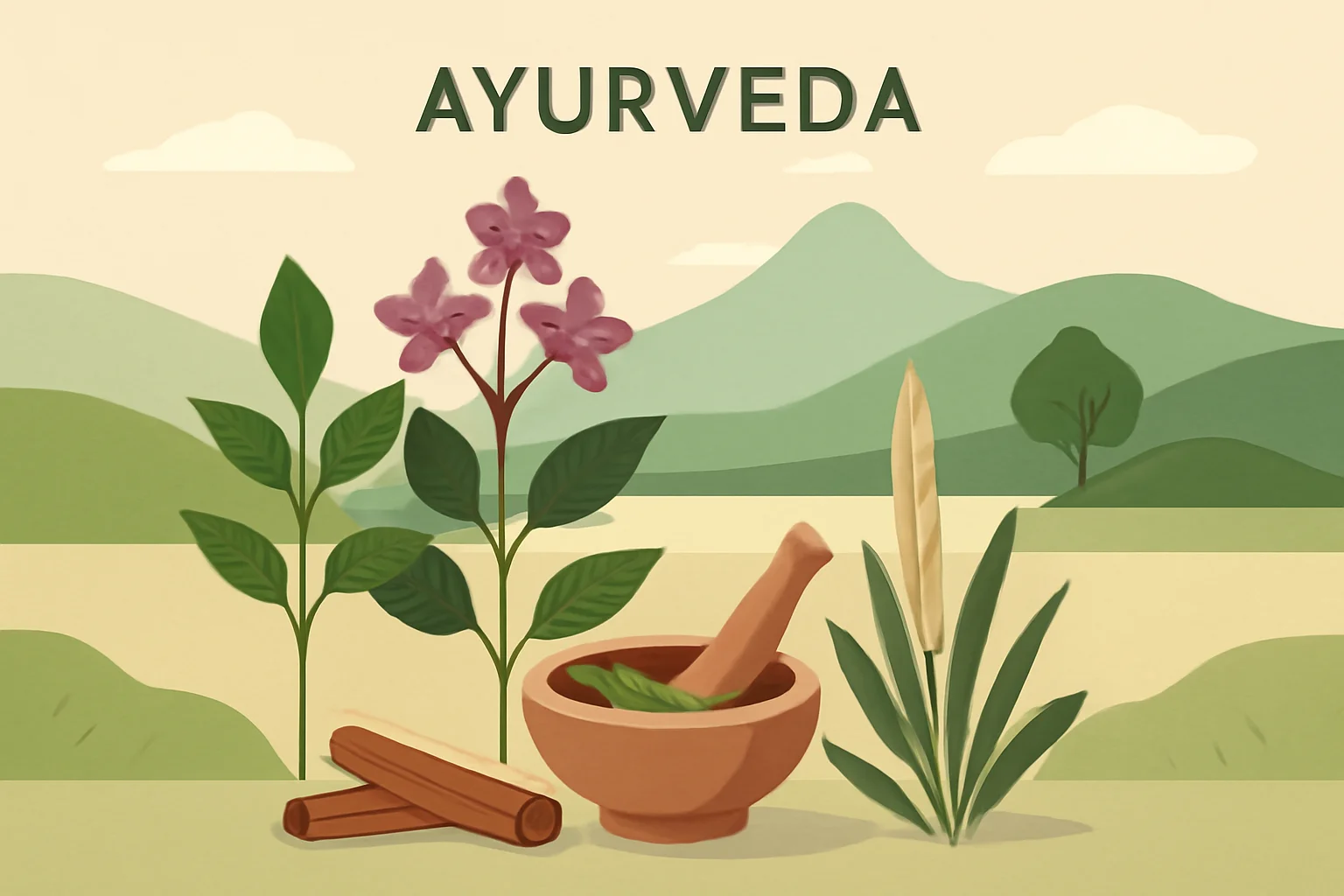
The Secrets of Ayurveda: Harmony and Health with the Power of Nature
The Ayurveda, an ancient Indian system of medicine and lifestyle, is based on thousands of years of traditions. This philosophy emphasizes not only physical health but also mental and emotional well-being. In Ayurveda, the triad of body, soul, and spirit plays a key role, aiming to create harmony between the individual and their environment. The fundamental elements of this system include nutrition, movement, meditation, and the use of various herbs.
The Principles of Ayurveda
The principles of Ayurveda are based on the harmony between nature and humanity. Ancient Indian sages believed that the elements that compose the world—earth, water, fire, air, and ether—are present in everyone. These elements are grouped into three basic types, or doshas: Vata, Pitta, and Kapha. Every individual carries these doshas in unique proportions, influencing their physical, mental, and emotional states.
The Vata dosha represents movement, creativity, and energetic thinking. If someone has a dominant Vata, they may often experience fatigue, anxiety, or digestive issues. The Pitta dosha embodies fire, passion, and determination. An excess of Pitta can lead to irritability, inflammation, and digestive disorders. The Kapha dosha represents stability and calmness, but its excess can result in sluggishness, weight gain, and depression.
Ayurveda aims for individuals to harmonize their doshas while considering environmental influences such as seasons, age, and lifestyle. Proper nutrition, exercise, and meditation all contribute to creating harmony. Ayurvedic medicine not only addresses physical symptoms but also seeks to uncover root causes to offer lasting solutions.
Ayurvedic Nutrition
Ayurvedic nutrition is not just about eating; it is also about conscious eating. When selecting and preparing foods, it is essential to consider one’s individual dosha, the seasons, and personal preferences. The goal of Ayurvedic nutrition is to nourish the body and soul while creating inner balance.
An Ayurvedic diet typically relies on fresh, seasonal, and local ingredients. Foods should provide energy and support the body’s natural functions. Ayurveda also emphasizes the balance of various tastes (sweet, salty, bitter, sour, spicy), all of which play important roles in nutrition.
Those with a Vata dosha should consume warm, moist foods, such as soups and stews, while Pitta dosha individuals are recommended cooling and light foods, like raw vegetables and fruits. Kapha dosha individuals benefit from spicy, easily digestible foods, such as spicy soups and steamed vegetables.
Ayurvedic nutrition is not only about food choices but also about mindful eating habits. It is important to eat in a calm environment, slowly and attentively. This aids in proper digestion and more effective nutrient absorption.
Ayurvedic Herbs and Treatments
Ayurveda is rich in herbs and natural treatment methods aimed at creating harmony between the body and soul. When applying Ayurvedic herbs, it is crucial to consider the dosha and individual needs. Herbs serve not only to treat physical symptoms but also to restore internal balance.
Neem, tulsi (holy basil), ginger, and turmeric are some herbs commonly used in Ayurvedic medicine. Neem is known for its antibacterial and anti-inflammatory properties, while tulsi boosts the immune system and helps manage stress. Ginger has digestive aid properties, and turmeric is popular for its strong antioxidant and anti-inflammatory effects.
Ayurveda also offers numerous treatment methods, such as oil massages (abhyanga), steam baths (swedana), and cleansing therapies (panchakarma). These treatments aim to promote detoxification, improve circulation, and support relaxation. The oils and herbs used in Ayurvedic massages have various effects and can help reduce stress and tension.
Thus, Ayurvedic medicine focuses not only on treating symptoms but also targets the roots and emphasizes disease prevention. The combination of herbs and natural treatments can help maintain a healthy lifestyle.
Ayurveda in the Modern World
Ayurveda is gaining increasing popularity in the modern world as people increasingly seek natural and holistic solutions for their everyday problems. Due to stress, unhealthy lifestyles, and environmental factors, many experience health issues that Ayurveda can offer alternative solutions for.
Modern science is also increasingly discovering the benefits of Ayurveda, with numerous studies validating the effectiveness of herbs and Ayurvedic treatments. Integrating Ayurvedic advice and remedies into modern medical practice can help improve patient conditions and contribute to holistic health maintenance.
Ayurveda focuses not only on physical health but also on mental and emotional well-being. Meditation and breathing exercises, which are part of Ayurvedic practices, can help manage stress and maintain mental clarity. People are increasingly recognizing that health is not just about physical condition but also about mental and emotional harmony.
Therefore, Ayurveda is not just a medical system but a lifestyle that prioritizes a natural, holistic approach. Despite the challenges of the modern era, the values and principles of Ayurveda remain relevant and can help people live healthier and happier lives.
**Disclaimer:** This article does not constitute medical advice. In case of health issues, individuals should only follow the advice of a physician.

